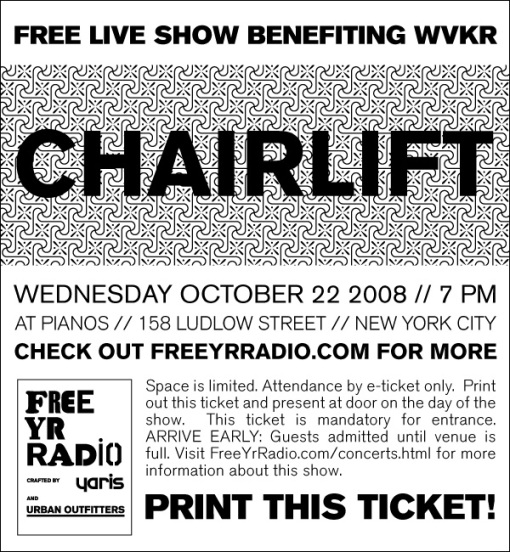Some musings from student DJ Misho, who does a weekly show on Wednesday mornings 6-7 a.m. Check it out!!

I’ve been reading a lot of Fitzgerald lately, there is something so poignant, yet familiar, in his portrayals of the young intellectual bourgeois of the Jazz Age. Amory Blane. Anthony Patch. These guys were it. Tragic, and often pathetic, as they are, Fitzgerald’s self-indulgent heroes are unmistakably glamorous. Theirs was a world where undergrads drank highballs and forward young women bobbed their hair. Hot jazz and flappers played until the early morning. Alcoholism was still romantically tragic, inexplicably tied with stale cigarettes and crimson lipped women. World War I–the war to end all wars–and the trenches loomed in the backdrop. Disenchanted, Fitgerald’s heroes lived as if they were the last and final generation, recklessly plummeting themselves into glittering despair.
I’ve also been listening to a lot of Beirut.
I admit this with some degree of hesititation. Beirut is all over the indie music scene and is now too mainstream to be considered cutting edge. Therefore, to be writing about Beirut three months after the release of their second album (The Flying Club Cup) seems a bit out of date. Furthermore, their influences and allusions are, at times, painfully transparent. The band’s first album (Gulag Orkestar) was written and produced by a 19-year old Zach Condon, who had never even been to Eastern Europe, and was hailed by many as simply “a one trick pony.” Yet, there is something about Beirut–particularly in their sophomore album–that is haunting, engaging, and extremely charming.
Part of it, is the technicality of the music itself. Condon’s silky voice pulls the listener through the stagier oompa-loompa bits of songs like “Nantes” and “A Sunday Smile”. In general, the band has toned down the campy Balkan folk rock sound of their first album Gulag Orkestar and EP Lon Gisland. The result is a smoother, moodier, and–in my opinion–more enjoyable album. But, there’s more to it than that, which brings me back to Fitzgerald.
Somewhere around “Cliquot” on The Flying Club Cup I realized that listening to Beirut reminded me of reading Fitzgerald. There is the same kind of brooding glamour in Beirut’s music as there is in Fitzgerald’s novels. Not to say that Beirut is alone in conjouring up scenes and moods of the 1920s. Stars’ fourth album In the Bedroom After the War seems to be also drawing inspiration from WWI Europe, the cover art alone serving as a nod to the French Impressionists. Cease to Begin by Band of Horses and The Stage Names by Okkervil River are two other 2007 releases that invoke the same nostalgic feeling for a time past. Which led me to the question: why are so many young bands (i.e. mainly Beirut) looking back at the WWI era for inspiration?
Well, I think it has a lot to do with the similar predicaments that our two generations face/faced. The modern and the postmodern have much in common. Before the onslaught of WWI the American youth were, in truth, “lost”. With high unemployment rates, existentialism, and an emphasis on material culture young Americans found a violent kind of solace in drugs, alcohol, sex, and jazz. They felt they had no purpose. Then, of course, WWI happened. Today, Generation Y, I believe, suffers from the same feeling of being lost. We also share the same feeling of individualism. But this time, the War on Terrorism feels too far removed to have the same effect as the Great War did for the G.I. Generation. Hence, our nostalgia.
Looking back at the WWI era becomes a source of inspiration for today’s youth because we can relate, but more importantly because we can romanticise. WWI gives the old generation a sense of validation from the postmodern perspective. Yes, they were tragic figures but they had reason to be tragic; they had the trenches! There was meaning behind all their dark musings and destructive behavior. They, in this manner, become idealized. Today’s youth feels that it is suffering in the same way but we have no Great War. We have nothing. There is comfort in recognizing ourselves in the past and finding an answer.




